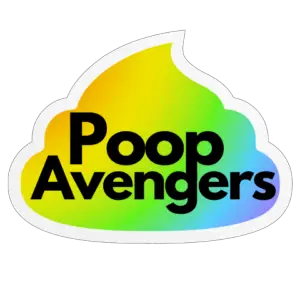Chlorine, a chemical element commonly used in swimming pools, is critical in maintaining the pool’s cleanliness and safety.
It’s designed to kill bacteria, viruses, and other microbes which can cause illnesses. There’s a widespread belief among pool users that chlorine can clean everything, including fecal matter, from the water.
While not entirely incorrect, this assumption does not tell the complete story. Pool hygiene and safety are paramount, and understanding the role of chlorine in this context is essential.
In this article, we will delve deeper into the capacities and limitations of chlorine in cleaning poop in pools.
The Role of Chlorine in Pool Maintenance
Chlorine as a Disinfectant
- How Chlorine Kills Bacteria and Germs
Let me take you back to when I was still a pool owner and not yet the pool expert I am today. One sunny afternoon, my neighbor, a microbiologist, came over for a pool party.
While we were floating around on inflatable loungers, he explained how chlorine works its magic. Essentially, chlorine attacks bacteria and germs in the water at a cellular level.
It breaks down their protective outer layers, rendering them unable to function or reproduce—an effective end to these unwelcome pool crashers!
- Chlorine’s Effectiveness in Preventing Waterborne Illnesses
I remember when my sister’s kids came over for a swim. Despite many stern warnings, the youngest, Ben, swallowed a good gulp of pool water.
Luckily, thanks to the chlorine I included religiously in the pool maintenance, Ben didn’t get ill afterward.
That incident reminded me of how chlorine can effectively prevent waterborne illnesses, such as E. coli and Giardia, by killing the bacteria and parasites that cause them.
Other Functions of Chlorine in Pool Water
- Algae Prevention
When I first got my pool, I was proud of its crystal-clear water. But within a week, I noticed a greenish tinge.
The culprit? Algae. Fortunately, I knew what to do: I slightly increased the chlorine level in my pool. In a matter of days, the algae disappeared.
Chlorine can prevent algae from growing by killing spores before they have a chance to bloom.
- Breaking Down Organic Matter
I noticed the water was becoming increasingly cloudy during one overcrowded pool party.
It was due to the excess of organic matter – sunscreen, sweat, hair, you name it.
I learned that chlorine can help break down this organic matter, making it easier to filter out.
After that fiasco, I regularly checked and adjusted the chlorine levels to keep my pool sparkly and clear.
Chlorine and Fecal Contamination
When I told my neighbor about the occasional “accidents” in my pool, he laughed it off, saying, “Well, that’s what chlorine’s for, right?” This is a common misconception.
Many believe chlorine can magically clean fecal contamination from pools, but it’s not as simple.
Limitations of Chlorine in Handling Solid Waste
- Ineffectiveness Against Visible Debris
Large solid waste or visible debris cannot be disinfected or removed effectively with a high chlorine level.
I remember removing a soiled diaper from the pool one day, and let me tell you, the chlorine didn’t make that any less unpleasant.
- Challenges in Breaking Down and Disinfecting Fecal Matter
While chlorine can help disinfect the water, it takes time to break down fecal matter.
Furthermore, certain microorganisms in feces, like Cryptosporidium, are resistant to chlorine.
Alternative Pool Sanitization Methods
Investigating ways to keep my pool clean led me to discover alternative sanitization methods.
UV and ozone systems are two alternatives I found. They can add an extra layer of protection against microorganisms that chlorine might not kill.
While these methods are promising, they’re not replacements but complements to chlorine. So, I’ve started using UV in addition to regular chlorination, and it’s helped to keep my pool clean and safe.
Conclusion
Owning a pool has taught me a great deal about chlorine’s role. It’s a powerful sanitizer, but it isn’t a cure-all solution.
From my mishaps, I can’t stress enough how vital it is to follow the CDC’s procedures, especially during fecal incidents.
For all pool owners, it’s our responsibility to ensure our pools are safe. Let’s stick to the regulations, sanitize properly, and ensure everyone can enjoy a clean, safe swim.
